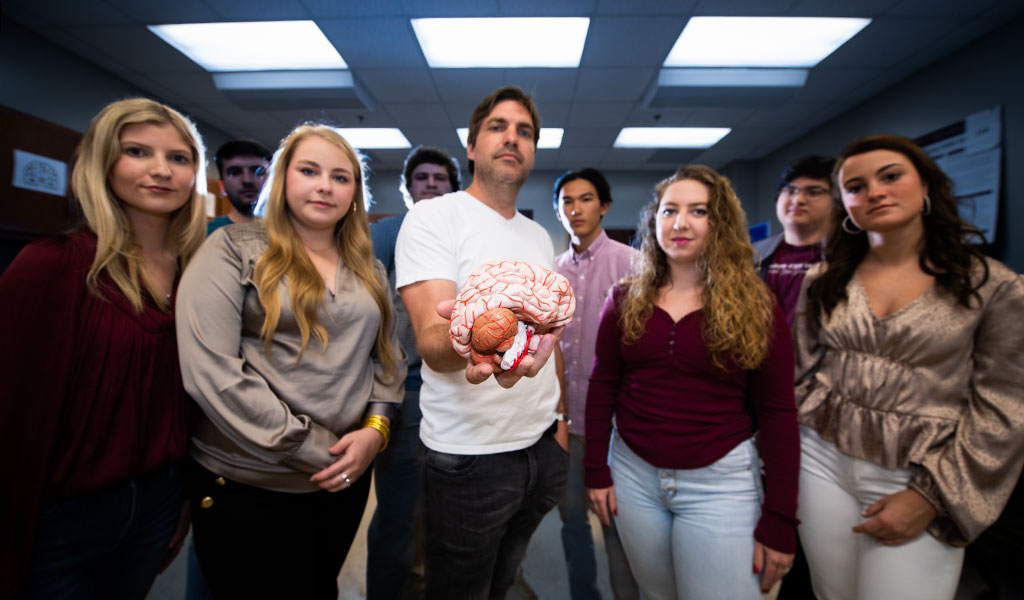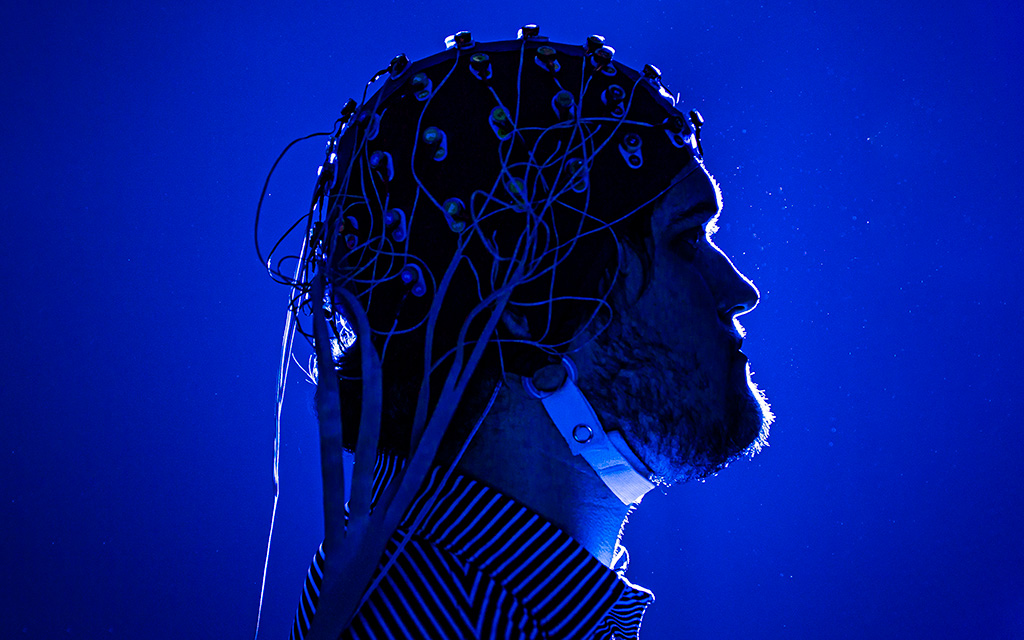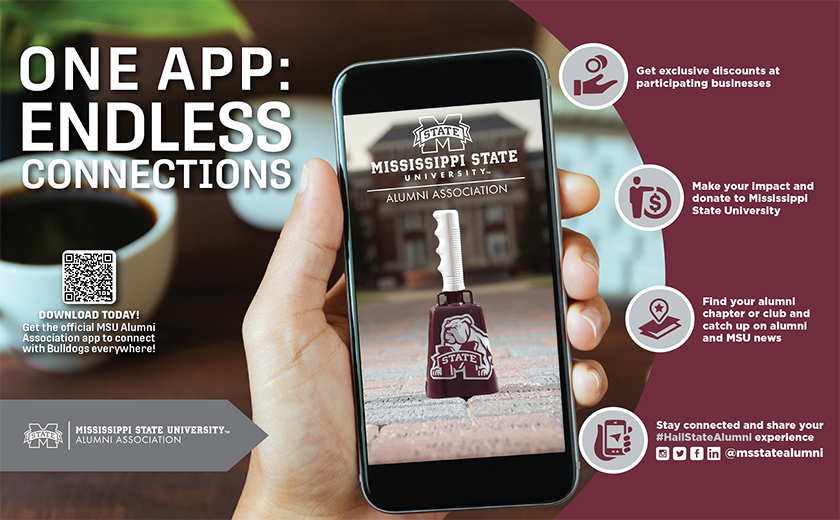MSU laboratory explores mysteries of the human brain
For generations of Americans who lived through taunts of “nerd” when their look or interests differed from the in-crowd, the word likely brings up feelings of adolescent angst. However, one group of Bulldogs embraces the label.
For members of the NERD lab, being “nerdy” is something to be proud of and soon, it could redefine how neural science is studied.
Short for Neural Engineering Research Division, NERD is a part of the Department of Agricultural and Biological Engineering. It focuses on research at the intersection of engineering, neuroscience and artificial intelligence, and is led by David Vandenheever, who joined MSU as an associate professor in 2021 after moving to Starkville from South Africa.
Vandenheever created NERD as an extension of his research efforts in biomedical engineering. He said he had always been interested in the brain and wanted to create more opportunities for students and faculty at Mississippi State to get hands-on experience in the area.

“Across the world, there is a growing interest in neuroscience and trying to understand the brain, but there were not a lot of opportunities at MSU to study it,” Vandenheever said. “There are quite a few individuals across the university in programs like kinesiology, computer science and psychology who are interested in the brain as well. We decided to get together and see if we can make something happen.”
The lab is made up of graduate and undergraduate students. Together, the “nerds” work on multiple studies and no idea is off of the table.
Jennifer Kemp, a senior biomedical engineering major who helps manage laboratory operations said the main projects use electroencephalogram—or EEG—to show how the brain responds to stimuli. The EEG records electrical activity in the brain to allow students to collect data from the tests they run in the lab.
“We hook the EEG up to people who are playing table tennis or esports and we’re going to use that data to look at different effects on the brain,” Kemp said. “I think esports is probably my favorite experiment, just because video games are something we all enjoy and my competitive side comes out.”
Ultimately, the “nerds” hope their data collection will help make an impact in two broad areas of study, one being the diagnoses and management of mental disorders.
“We are hoping to better understand mental health in a way that can better inform diagnoses,” Vandenheever said. “We’re looking specifically at ADHD, anxiety and depression. These are real-world problems with real-world consequences where we hope to make a telling impact.”
Through the second area of study, Vandenheever said he hopes the lab’s results can help unravel the mysteries of consciousness.
“Consciousness is both the most familiar and most mysterious phenomenon in the universe, and I have big ambitions to help solve the mysteries it still conceals,” Vandenheever said. “There is something called the ‘hard problem of consciousness’. That is a problem that has been plaguing philosophers for millennia and one I would love to make progress on.”
Although Vandenheever oversees the NERD lab and makes the call about what experiments and lines of inquiry to pursue, he said his ultimate goal is to give students the opportunity to leave Mississippi State having conducted research and performed experiments completely on their own.
“This sounds super corny, but inspiring students is a passion of mine,” Vandenheever said. “I want to empower my students to do the thinking themselves, and the NERD lab gives them the opportunity to put that type of thinking into hands-on experience.”
By Emily Cambre, Photos by Grace Cockrell






